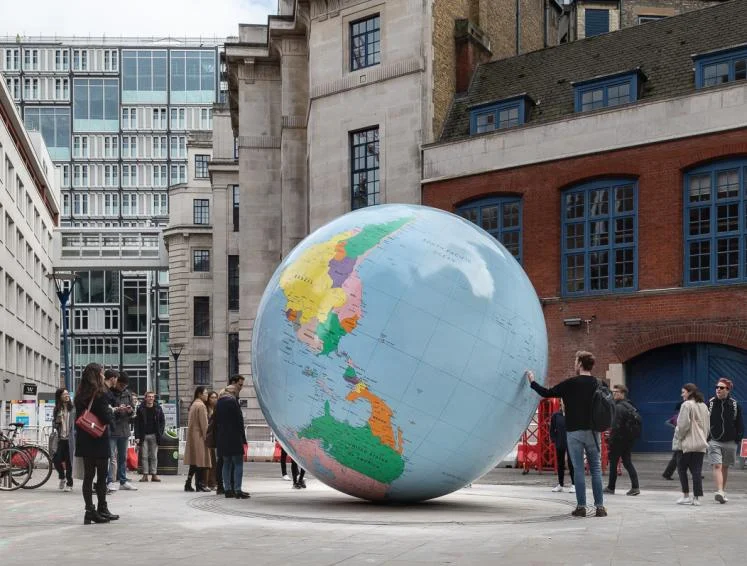LSE joins Ellen MacArthur Foundation Network to support a circular economy

LSE is the first university in London to become a Network Partner of the Ellen MacArthur Foundation, an international charity committed to creating a circular economy through eliminating waste and pollution, circulating products and materials, and regenerating nature.
The university, a Member of the Foundation’s Network since 2020, has now become a Partner. Announced during London Climate Action Week, this new Partnership underscores the School’s commitment to sustainability and circular business practices, through our research, education, building design and estate management.
The Grantham Research Institute for Climate Change and the Environment at LSE is a world-leading centre for policy-relevant research, bringing together international expertise on economics, finance, geography, the environment, international development and political economy.
In addition to research, the circular economy is embedded across the School’s teaching and learning experiences. We equip graduates with the knowledge, critical thinking and skills needed to become citizens and leaders, empowering them to address future challenges and make a positive impact in the world.
For example, LSE’s Department of Geography and Environment explores circular economy concepts as part of its Sustainable Development course, one of several relevant programmes offered by the School. The department also organised the last year, a competition inviting students from around the world to design fashion products that last longer.
strives to embed circular economy principles across campus and we endeavour to design and construct new buildings that meet the highest standards of environmental sustainability, climate resilience and human wellbeing, throughout the lifecycle of the building.
Our latest development, The Firoz Lalji Global Hub, based on the site of 35 Lincoln’s Inn Fields, will see an existing building refurbished to deliver the highest sustainability standards. To achieve this, we will reduce the amount of raw material required for the refurbishment and maximise the retention and re-use of existing materials, through optimising the design and material selection.
In addition to promoting the circular economy, the Firoz Lalji Global Hub will be LSE’s first net-zero building. This means the building’s carbon emissions will be transparently calculated, avoided or reduced; and residual emissions offset, so net carbon emissions equal zero.
Commenting on the partnership, Tammy Armstrong, Head of Sustainability at LSE said: "We are delighted to be invited to take up our new Partner status with the Ellen MacArthur Foundation. We look forward to the mutual benefits of partnering and accelerating the transition to a circular economy through thought leadership, theory and practice."
Julian Robinson, Director of Estates at LSE added: "LSE is delighted to become a Partner of the Ellen MacArthur Foundation’s Network. Climate change is the defining issue of our age. LSE is trying to play its part in designing a sustainable future by ensuring all its new developments are net carbon zero in construction and operation. For example, our Firoz Lalji Global Hub will reimagine an existing building, retaining 60% of the structure, foundation and facades, transforming an old building into a world class sustainable exemplar."
Joss Blériot, Executive Lead, International Institutions & Policy at the Ellen MacArthur Foundation said: "The circular economy is a system change agenda that entails a realignment of business practices and regulatory frameworks. We are delighted to announce our Network partnership with the LSE and are looking forward to leveraging the school's expertise to collaborate towards an accelerated transition."
To find out more about sustainability at LSE and read relevant news and updates, please visit our Sustainability webpage.